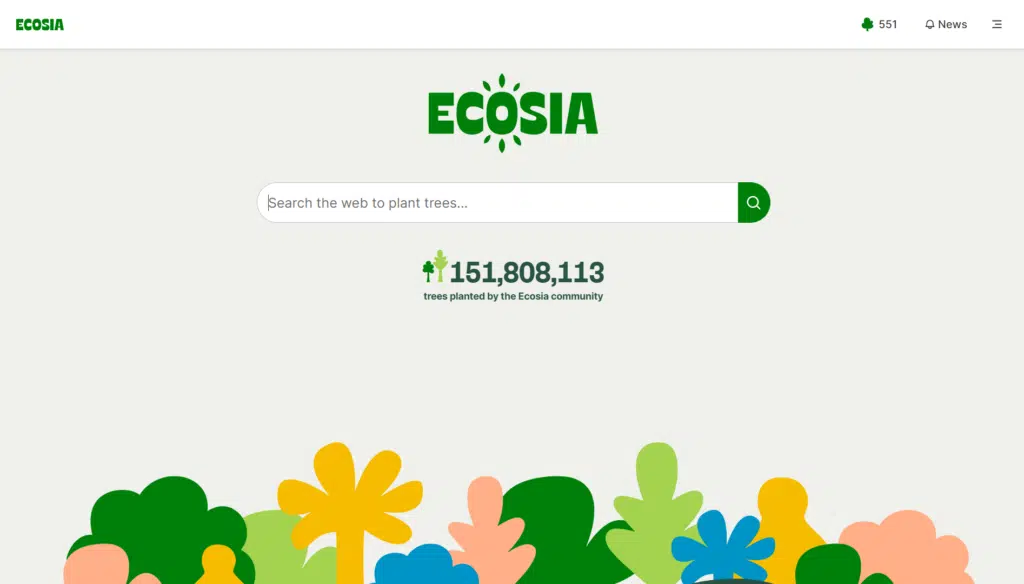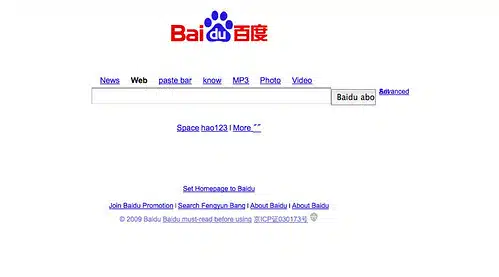Are you wondering what the best search engines are?
In today’s digital age, having a strong online presence is crucial for small businesses. One of the best ways to enhance visibility and attract potential customers is through search engines.
With several options available, choosing the right one can significantly impact your business's success.
Here’s a rundown of the best search engines and how they can benefit your small business.

Best Search Engines & Usage Statistics
Understanding the popularity and reach of different search engines can help you make an informed decision.
Here are some statistics on the usage of major search engines:
Looking for an experienced Wordpress Development company?
As of 2023, Google dominates the search engine market with approximately 92.47% of the global market share.
This makes the Google search platform essential for any small business looking to maximize online visibility.
Bing
Bing holds the second position, capturing around 2.73% of the global market share.
While this is significantly lower than Google search results, Bing's integration with Microsoft products and its unique audience can offer valuable opportunities for businesses.
Yahoo
Yahoo, powered by Bing, accounts for about 1.48% of the market share.
Despite the smaller share, it's worth noting that Yahoo still maintains a loyal user base, who prioritize the need to personalize search results.
Baidu
Primarily serving the Chinese market, Baidu commands around 1.32% of the global market share.
For businesses targeting audiences in China, Baidu is a crucial platform, unlike traditional search engines like Google, Bing, and Yahoo.
DuckDuckGo
This privacy-focused search engine has grown in popularity, holding approximately 0.65% of the market share.
DuckDuckGo appeals to users who prioritize privacy and may provide a niche audience for small businesses.
By understanding these statistics and considering up to date information, you can better allocate your resources and strategies to the search engines that will give your small business the greatest potential for growth and customer engagement.

1. Google – The Powerhouse for Online Visibility
Google commands the lion’s share of the search engine market, making it essential for any small business aiming for online visibility.
Benefits:
- Massive Reach: With over 90% market share, Google ensures your business reaches a vast audience.
- Google My Business: Enhances local search visibility, making it easier for customers to find your business.
- Analytics: Provides valuable insights into user behavior, helping you tailor your marketing strategies.
- Advertising: Google Ads allows cost-effective advertising, targeting specific demographics and keywords.

2. Bing – Unique Opportunities for Niche Markets
While Google dominates, Bing still holds significant value, especially for niche markets.
Benefits:
- Lesser Competition: Lower competition on Bing can mean higher ad placement at a lower cost.
- Bing Places for Business: Similar to Google My Business, it helps improve local SEO.
- Integration: Integrates seamlessly with Microsoft products, which are widely used in professional environments.

3. DuckDuckGo – Privacy-Focused Searching
For users concerned about privacy, DuckDuckGo is an excellent choice that prioritizes anonymity.
Benefits:
- Privacy: Doesn’t track user activity, making it a favorite among privacy-conscious consumers.
- Trust: Building trust with customers who value their privacy can lead to increased loyalty.
- Ad Transparency: Offers clear and relevant ad placements without compromising user data.
4. Yahoo – Still a Relevant Option for Some
Though not as dominant as it once was, Yahoo remains a viable option for certain audiences.
Benefits:
- Established Brand: Long-standing reputation and loyal user base.
- Yahoo Small Business: Offers tools and resources tailored for small business needs.
- Content Integration: Opportunities for native advertising through Yahoo’s extensive content network.

5. Ecosia – Environmentally Conscious Searching
Ecosia stands out by using its ad revenue to plant trees, appealing to eco-conscious consumers.
Benefits:
- Social Responsibility: Attracts customers who prioritize sustainability and social impact.
- Brand Image: Enhances your brand's image by aligning with environmental causes.
- Transparency: Regularly publishes financial reports showing impact, building trust with users.

6. Brave Search – A New Contender Prioritizing Privacy and Independence
Brave Search is an emerging search engine that focuses on providing a privacy-first experience while maintaining robust search capabilities.
Benefits:
- Privacy by Default: Brave Search does not track user data or behavior, making it ideal for privacy-conscious users.
- Independent Index: Unlike many other search engines which rely on third-party indexes, Brave Search uses its own index, ensuring a more independent search experience.
- Ad Model: Offers an innovative ad model where users can choose to view privacy-respecting ads and earn rewards in return, potentially providing businesses with a new avenue for engagement.
- Transparency and Control: Users have greater control over their search experience, with clear privacy policies and commitment to transparency.
- Ecosystem Integration: Integrates well with the Brave browser, which is gaining popularity among users who prioritize privacy and speed.
By staying informed about these search engines and their unique benefits, small business owners can strategically utilize them to enhance their online presence and connect with a wider audience.

Best Alternative Search Engines & Why People Might Consider Using an Alternative Search Engine
In a digital landscape dominated by major players like Google, it's important to explore alternative search engines that offer unique features and benefits.
Here are some of the best alternative search engines and reasons why people might consider using them:
1. Startpage
Why Consider Startpage:
- Privacy: Startpage is known for its privacy-focused approach. It does not track user activities and protects user anonymity.
- Google Results: Despite being privacy-oriented, Startpage provides search results from Google, offering the best of both worlds—privacy and high-quality search results.
2. Qwant
Why Consider Qwant:
- Privacy-Centric: Like Startpage, Qwant also prioritizes user privacy by not tracking search histories.
- European Compliance: Qwant is based in Europe, making it compliant with strict GDPR privacy regulations.
- User Interface: Features an intuitive, visually appealing interface that sets it apart from other search engines.
Baidu
Why Consider Baidu:
- Target Market: Baidu dominates the Chinese market, making it a go-to search engine for businesses targeting Chinese consumers.
- Services Integration: Offers various services beyond search, including maps, news, and cloud storage, integrated seamlessly into the search experience.
4. Yandex
Why Consider Yandex:
- Russian Market: Yandex is the most popular search engine in Russia and CIS countries, ideal for reaching audiences in these regions.
- Comprehensive Services: Includes a suite of services like email, cloud storage, maps, and more, creating an ecosystem similar to Google's.
5. Search Encrypt
Why Consider Search Encrypt:
- Encryption: Offers advanced encryption to ensure search queries are private and cannot be intercepted.
- Self-Destructing Search History: Automatically deletes search history after 30 minutes of inactivity, providing an additional layer of security.
6. Mojeek
Why Consider Mojeek:
- Independent Index: Builds its own index, providing truly independent search results that are not influenced by third-party databases.
- Ethical Search: Focuses on delivering non-personalized search results, maintaining ethical standards in search neutrality.
7. Swisscows
Why Consider Swisscows:
- Family-Friendly: Filters inappropriate content, making it a safe and reliable option for families and educational use.
- Data Security: Based in Switzerland, it adheres to strong data protection laws, ensuring high levels of privacy and security.
Using alternative search engines can offer substantial benefits beyond the typical search experience offered by Google and other traditional search engines.
Users may choose these alternatives as their main search engine to prioritize privacy, access region-specific content, enjoy unique features, or support ethical and sustainable practices.
By diversifying their search engine choices, users and businesses can ensure they are not solely dependent on a single platform, potentially gaining enhanced security, trust, and tailored user experiences.
Why Your Business Needs to Consider Search Engines
In the competitive landscape of today's digital marketplace, leveraging search engines is no longer optional but a necessity for small business owners.
Here are key reasons why integrating search engines into your business strategy is essential:
Increased Visibility
Search engines are the gateway to the internet.
By optimizing your presence on search engines, you can ensure that your business is easily found by potential customers searching for products or services like yours.
Targeted Marketing
Search engines offer powerful tools to target specific demographics, locations, and even behaviors, ensuring that your marketing efforts reach the right audience at the right time.
Cost-Effective Advertising
With options like Google Ads and Bing Ads, you can run highly effective ad campaigns on a budget.
Pay-per-click (PPC) advertising ensures you only pay when someone clicks on your ad, maximizing your marketing spend.
Enhanced Credibility and Trust
A strong presence on major search engines such as Google and Bing can enhance your business's credibility.
Consumers often trust businesses that appear at the top of search results, associating them with authority and reliability.
Insights and Analytics
Search engines provide valuable data and analytics.
Understanding user behavior, popular search terms, and conversion rates can help you refine your business strategies and improve overall performance.
Competitive Advantage
Utilizing search engines effectively can give you a competitive edge.
By analyzing your competitors' strategies and staying ahead of SEO trends, you can attract more traffic and increase market share.
Mobile Reach
With the rise of mobile internet usage, optimizing for search engines ensures your business is accessible to users on-the-go.
Mobile-friendly websites and local SEO can drive foot traffic to your physical location via searches conducted on smartphone.
Understanding SEO
Search Engine Optimization (SEO) is the practice of enhancing your website to increase its visibility when people search for products or services related to your business on search engines like Google, Bing, and others.
Effective SEO strategies ensure that your site appears higher up on the search engine results pages (SERPs), drawing more organic traffic.
Here's a breakdown of key SEO components:
Keywords
Identifying and using relevant search term keywords that potential customers are searching for is fundamental.
This involves integrating these keywords naturally into your website content, meta descriptions, and headings.
High-Quality Content
Providing valuable, informative, and engaging content helps your site rank better.
Regularly updating your blog, articles, and other resources with content that answers common questions and solves user problems can improve your SEO.
Backlinks
Earning backlinks from reputable websites signals to search engines that your site is trustworthy and authoritative.
These inbound links can significantly boost your site's ranking.
Technical SEO
Properly structuring your website for search engine crawlers involves optimizing elements like site speed, mobile-friendliness, URL structure, and meta tags.
Local SEO
For small businesses, optimizing for local search is crucial.
This entails claiming and optimizing your Google My Business listing, collecting positive reviews, and ensuring your NAP (Name, Address, Phone number) information is consistent across online directories.
User Experience (UX)
Search engines favor websites that offer a positive user experience.
This includes having a clean, easy-to-navigate design, fast loading times, and mobile optimization.
By understanding and implementing these SEO practices, your small business can enhance its online presence, attract more visitors, and convert them into loyal customers.
Conclusion – Choosing the Best Search Engines To Grow Your Business
Selecting the best search engines for your small business depends on your specific needs and audience.
Google is a must for its reach and tools, while Bing offers unique opportunities with less competition. DuckDuckGo appeals to privacy-focused users, Yahoo remains relevant for certain niches, and Ecosia aligns with eco-friendly values.
Ready to take your online presence to the next level? Book a call with our experts at Priceless Consulting LLC to help you optimize your search engine strategy and grow your business!
By leveraging these search engines, small businesses can enhance visibility, drive traffic, and ultimately increase sales.
Choose the one that aligns best with your values and business goals, and watch your online presence flourish.











